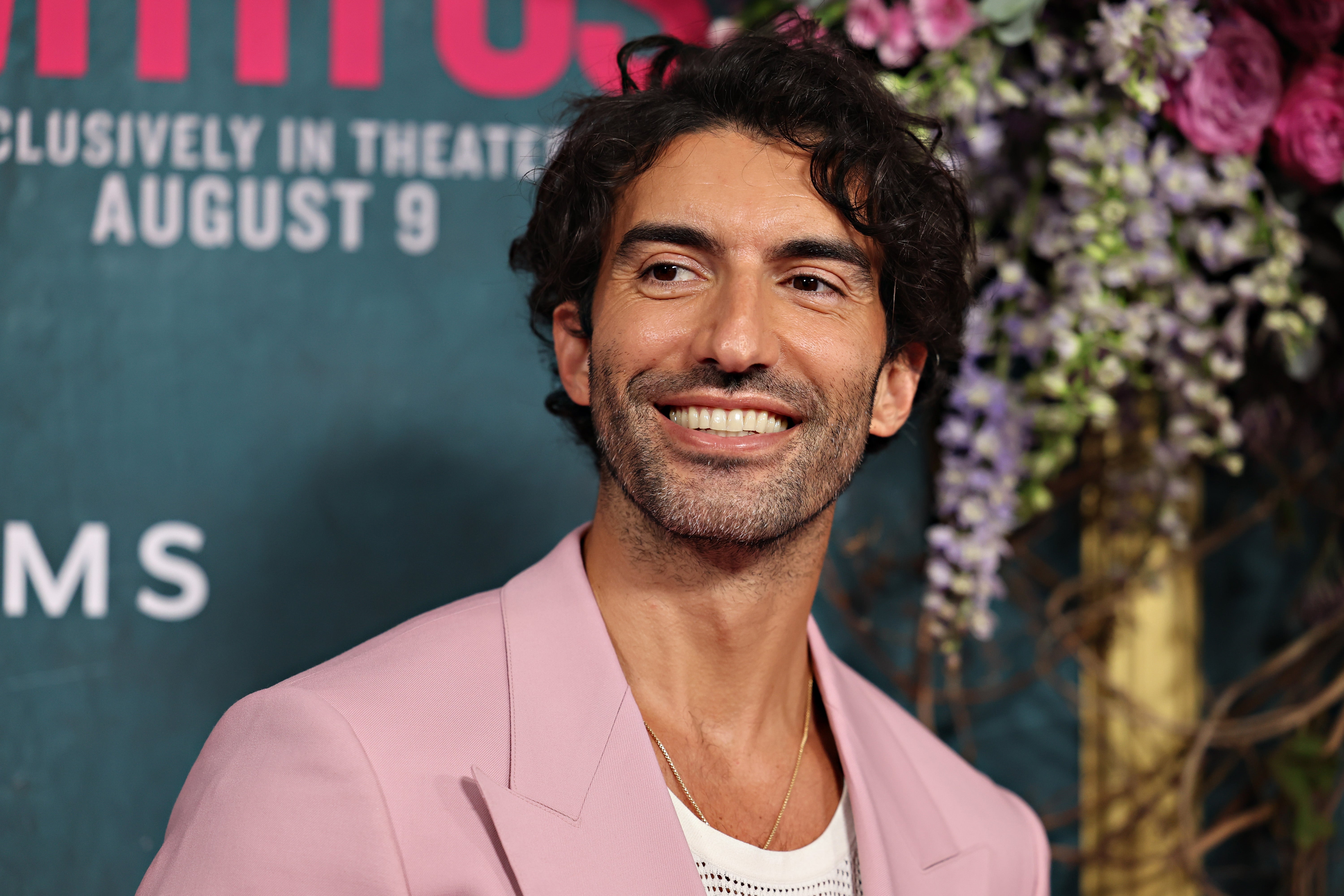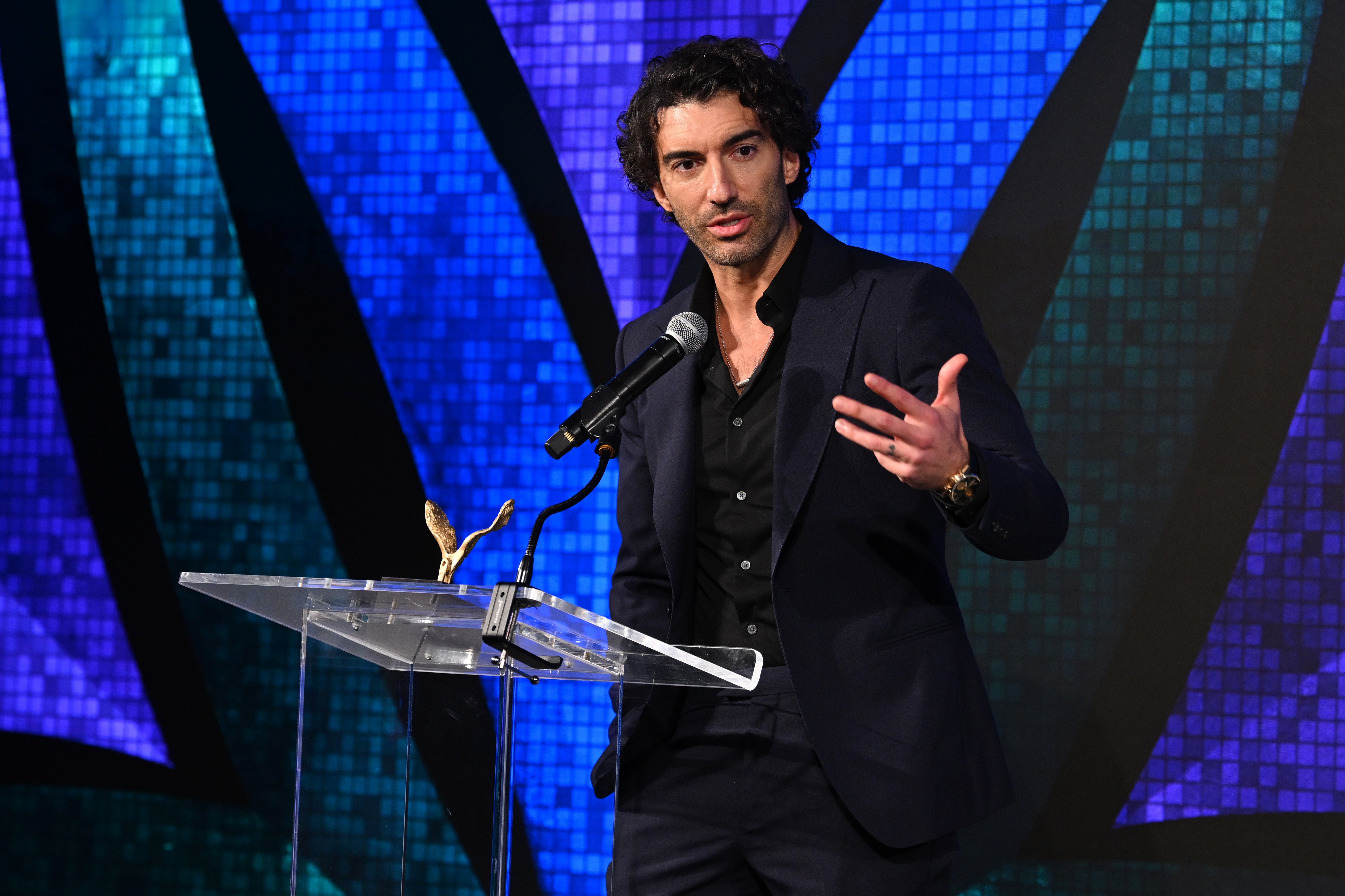What we know about the Justin Baldoni lawsuit against The New York Times
Baldoni directed and starred in the film ‘It Ends With Us’ alongside Blake Lively, who has now filed a lawsuit against him accusing him of sexual harassment
Your support helps us to tell the story
From reproductive rights to climate change to Big Tech, The Independent is on the ground when the story is developing. Whether it's investigating the financials of Elon Musk's pro-Trump PAC or producing our latest documentary, 'The A Word', which shines a light on the American women fighting for reproductive rights, we know how important it is to parse out the facts from the messaging.
At such a critical moment in US history, we need reporters on the ground. Your donation allows us to keep sending journalists to speak to both sides of the story.
The Independent is trusted by Americans across the entire political spectrum. And unlike many other quality news outlets, we choose not to lock Americans out of our reporting and analysis with paywalls. We believe quality journalism should be available to everyone, paid for by those who can afford it.
Your support makes all the difference.Justin Baldoni, lead actor and director of It Ends With Us, has sued The New York Times over its reporting of his co-star Blake Lively’s sexual harassment allegations against him.
Baldoni, 40, filed the lawsuit in Los Angeles on Tuesday over the Times’s coverage of Lively’s lawsuit, in which she accused Baldoni of sexual harassment during filming as well as organizing a “smear campaign” against her in the months that followed.
The lawsuit, reviewed by The Independent, claims the Times “relied almost entirely on Lively’s unverified and self-serving narrative” and disregarded “an abundance of evidence that contradicted her claims and exposed her true motives.”
Baldoni and the other plaintiffs, which include Wayfarer Studios and his PR executives, are suing for $250 million in damages.
Here’s everything we know about the lawsuit:

Baldoni says the Times ‘cherry-picked’ evidence, advanced a ‘false narrative’
Baldoni’s lawsuit argues the legacy media outlet pushed a “false narrative” by “cherry-picking out-of-context (and in some cases doctored) private communications” that weren’t intended for outside eyes.
Baldoni and the plaintiffs claim the Times designed their report to “villainize” him and “manufacture an impression of impropriety where none exists.”
The Times’s story came out after Lively, 37, accused Baldoni of sexually harassing her and organizing a “smear campaign” against her in the months that followed the filming of It Ends With Us.
The film is an adaptation of Colleen Hoover’s 2016 novel of the same name. The story centers around a flower shop owner, played by Lively, and her abusive relationship with her partner Ryle Kincaid, played by Baldoni.
Lively argued Baldoni and his associates conducted a targeted effort to “destroy” her and tarnish her reputation in the media, which she says has caused her “severe emotional distress.”
Her lawsuit contained several excerpts from text messages and emails between Baldoni, public relations executive Jennifer Abel and crisis management expert Melissa Nathan. These messages appear to show that the three of them sought to create a “plan” to deal with social media speculation and provide “protection” to Baldoni.
Baldoni claims both Lively and the Times took the messages out of context.
“The Times, as with Lively’s…Complaint, deliberately takes these communications out of context to bolster a fallacious narrative to quash Plaintiffs,” his lawsuit states. “When viewed in full context, these handpicked, doctored communications lose their manufactured impropriety and disprove Lively’s allegations.”

Baldoni claims Lively executed ‘a hostile takeover’ of It Ends With Us
Baldoni accused Lively of conducting a “hostile takeover” of the film in his lawsuit, alleging she tried to assert “unilateral control over every aspect of the production” through “strategic and manipulative” methods.
These actions, the lawsuit claims, resulted in her public image suffering — rather than any alleged smear campaign conducted by Baldoni and his team.
“Her public image suffered as a result of a series of high-profile blunders, which she tried to deflect by blaming Plaintiffs for the public’s prying interest into the foibles of an A-list celebrity,” the lawsuit reads. “This is nothing but an excuse. Fame is a double-edged sword, but Lively’s tactics here are unconscionable.”
“Alongside the Times, she orchestrated a malicious attack on the reputations, careers, and personal lives of Plaintiffs, subjecting them to public humiliation, threats, and vitriol,” the lawsuit continues.
This will reportedly not be the only lawsuit Baldoni and his associates file.
“This lawsuit seeks to hold the Times accountable for its role in this defamation campaign, but Plaintiffs are not done,” the lawsuit states. “There are other bad actors involved, and make no mistake—this will not be the last lawsuit.”

What have both sides said about the lawsuit?
The Times has defended its reporting — and noted the reporters included Baldoni’s full response to the allegations in their article.
“The role of an independent news organization is to follow the facts where they lead,” a Times spokesperson told The Independent on Tuesday. “Our story was meticulously and responsibly reported. It was based on a review of thousands of pages of original documents, including the text messages and emails that we quote accurately and at length in the article.”
“To date, Wayfarer Studios, Mr. Baldoni, the other subjects of the article and their representatives have not pointed to a single error,” the spokesperson added.
“We plan to vigorously defend against the lawsuit.”
Meanwhile, attorney Bryan Freedman said Baldoni and the other plaintiffs are uniting to “take down [the Times] by no longer allowing them to deceive the public.”
“In this vicious smear campaign fully orchestrated by Blake Lively and her team, the New York Times cowered to the wants and whims of two powerful ‘untouchable’ Hollywood elites, disregarding journalistic practices and ethics once befitting of the revered publication by using doctored and manipulated texts and intentionally omitting texts which dispute their chosen PR narrative,” Freedman said in a statement.
“In doing so, they pre-determined the outcome of their story, and aided and abetted their own devastating PR smear campaign designed to revitalize Lively’s self-induced floundering public image and counter the organic groundswell of criticism amongst the online public,” he added.
The Independent has contacted Lively’s representative for comment.
With reporting from Kevin E G Perry

Join our commenting forum
Join thought-provoking conversations, follow other Independent readers and see their replies
Comments